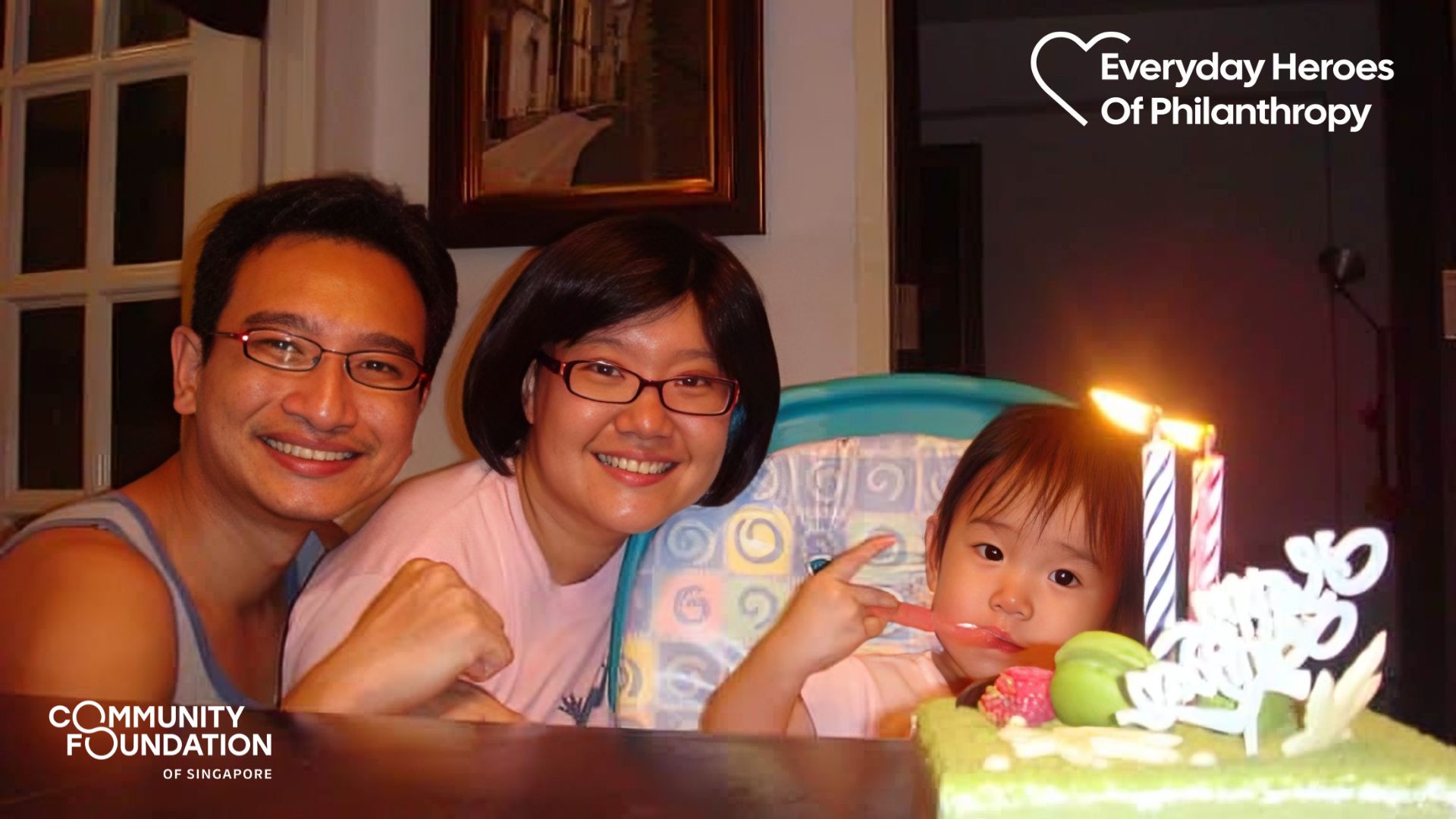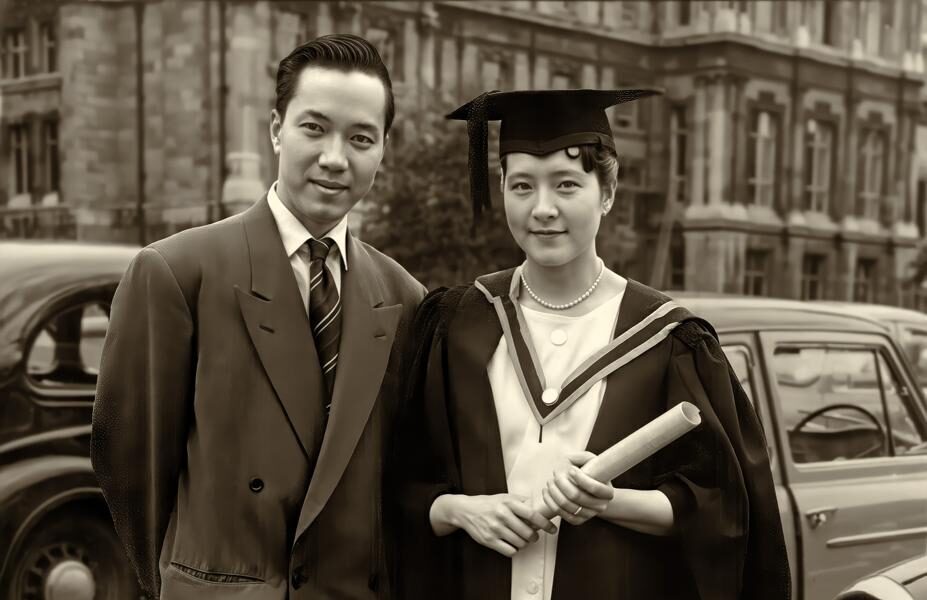Doing Good is Good for Business: The Future of Corporate Philanthropy

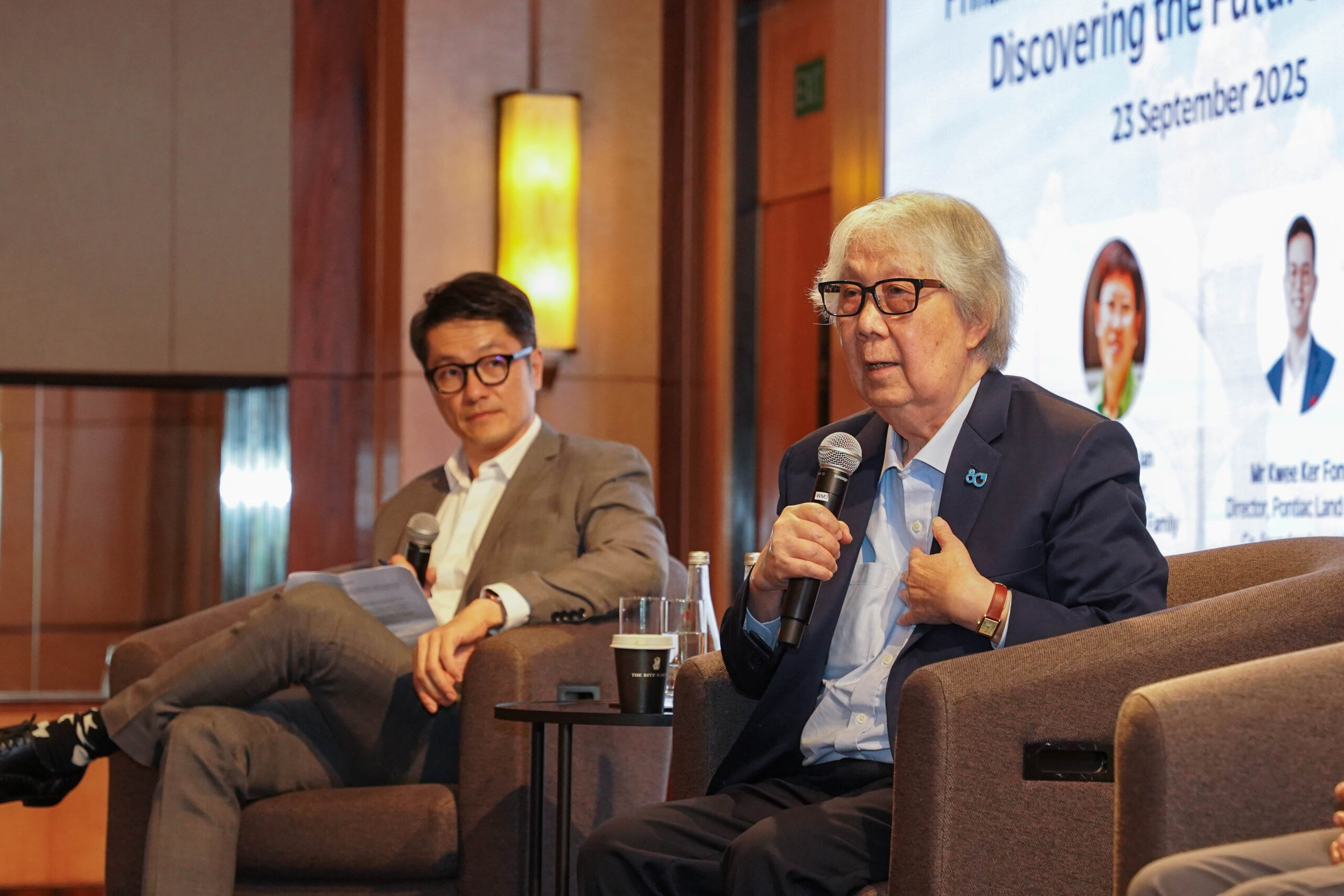
In today’s business landscape, success is no longer measured by profits alone. Increasingly, companies are judged by how responsibly they grow, and how generously they give back.
Corporate philanthropy in Singapore is evolving beyond token cheques and CSR boxes to tick. It’s becoming a core business strategy, one that shapes culture, attracts talent, and strengthens trust with communities.
At the Community Foundation of Singapore (CFS), we believe in purposeful giving — philanthropy that is structured, transparent, and aligned with a company’s mission. Bringing this perspective to the discussion, CFS Chief Executive Officer Paul Tan joined three prominent voices at a dialogue co-hosted by CFS and the National Volunteer and Philanthropy Centre (NVPC) to explore how purpose and profit can move in tandem.
They were:
- Professor Tommy Koh, Ambassador-at-Large at the Ministry of Foreign Affairs;
- Ms Ang Bee Lian, Senior Advisor at the Ministry of Social and Family Development;
- Mr Kwee Ker Fong, Director of Pontiac Land Group and Co-founder of ImpactSG.
Their message was clear: doing good is not charity; it’s smart business.
Beyond the Cheque: Doing Good as Smart Business
Professor Koh began with a simple but powerful challenge: that companies must move past the outdated notion of serving only shareholders. “Companies have responsibilities to employees, suppliers, partners, and the community,” he said.
Drawing from his experience in the United States, Professor Koh noted that even those with modest means contribute regularly to charitable causes, a mindset he hopes to see grow among Singaporean companies. “By doing good, companies attract good people,” he added. “If you are selfish and self-centred, you will not retain talent.”
This evolution from transactional to transformative giving illustrates how purpose is increasingly woven into a company’s identity – shaping not just what businesses do, but who they are.
Aligning Strengths with Service
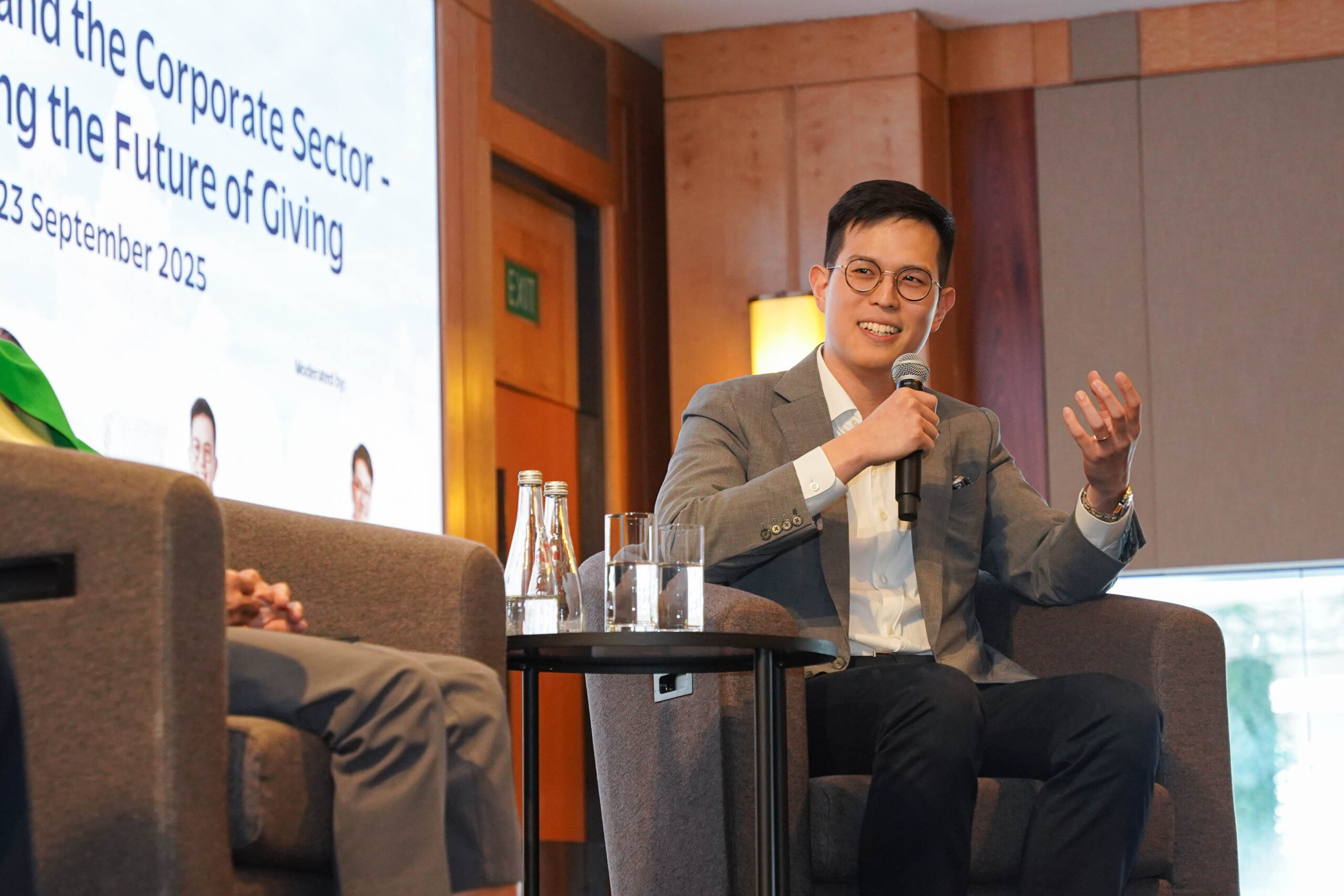
Echoing Professor Koh’s call for a broader corporate conscience, Mr Kwee Ker Fong shared how Pontiac Land makes giving authentic by building on what it does best.
At Pontiac Land, the family-owned property and hospitality group has channelled its staff expertise into social good. From deploying hospitality teams to soup kitchens to decluttering the homes of the elderly, their approach goes beyond donations to direct engagement.
“We believe giving starts at home,” he shared. The company extends support to its own people – from subsidised staff lunches and compassionate funds for families in crisis to bursaries for employees’ grandchildren.
“Most of us cannot change the world like Bill Gates,” Mr Kwee reflected, “but we can change our communities.”
The Human Side of Giving
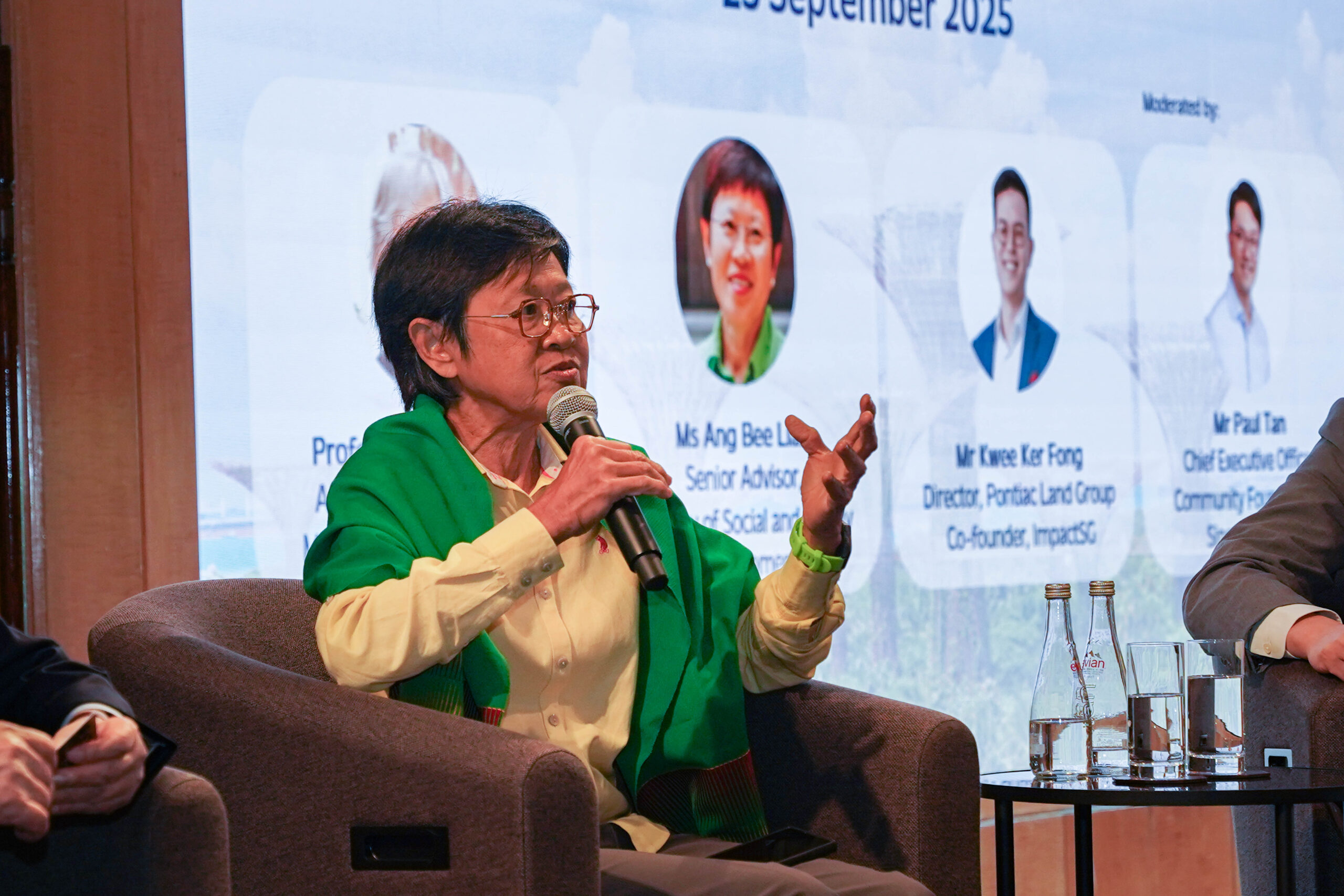
For Ms Ang Bee Lian, philanthropy is not just about money. “When companies create space for staff to volunteer, hidden talents emerge and deeper bonds form,” she said. “Once people experience volunteering, their hearts open – and after that, the wallet follows.”
Building on that point, Ms Ang urged companies to think more holistically. “Charities today cut across domains – ageing, health, arts, social inclusion. Corporate giving should support this interconnectedness,” she said.
Her words resonated with the broader theme of the afternoon: that philanthropy, when made personal, becomes transformative.
Towards Purpose in Action
Building on earlier reflections on empathy and engagement, the discussion explored how companies can translate purpose into action, sharing creative, transformative examples of giving.
One such story came from Guide Dogs Singapore. Professor Tommy Koh’s determination to introduce guide dogs to Singapore found unexpected momentum when a donor expressed a wish to help “working animals.” From that spark grew a first-of-its-kind service that restores independence and dignity to the visually impaired.
At Pontiac Land, purposeful giving took shape in the form of nutrition support for children’s homes. Discovering wide variations in meal standards, the company partnered the Health Promotion Board to host a workshop where Michelin-trained chefs demonstrated how to prepare nutritious, affordable meals within a S$5 budget – empowering caregivers through shared learning rather than top-down aid.
“When companies align what they know best with what communities need, the results are powerful,” said Mr Kwee.
A Call for Collective Action
As the discussion turned to the broader giving ecosystem, panellists reflected on how Singapore’s corporate community could deepen its collective impact.
Despite Singapore’s prosperity, Professor Koh noted that poverty still surfaces in unexpected places. “We are shocked by the extent of poverty in our schools and universities,” he said. “Even in the midst of great prosperity, there are still too many poor people in Singapore.”
Ms Ang highlighted another dimension – what she called “time poverty.” Many lower-income families, she explained, juggle multiple jobs, caregiving, and household responsibilities with little room to rest or recover. Beyond financial aid, she urged companies to design initiatives that give families back time — through flexible support, services, or community partnerships.
The panellists also identified emerging areas where corporate philanthropy must grow – from mental health and ageing to environmental sustainability.
Offering a data-driven perspective, Mr Kwee pointed out that while companies contribute 35 per cent of Singapore’s tax revenue, their giving remains roughly equal to that of individuals. “Corporates can and should do more,” he said.
Closing the discussion, Paul reflected that as Singapore prospers, the responsibility to ensure no one is left behind becomes ever more important – a belief that underpins CFS’ work through initiatives like the Collective for a Stronger Society, which unites partners to support lower-income families across Singapore.
The Future of Corporate Philanthropy
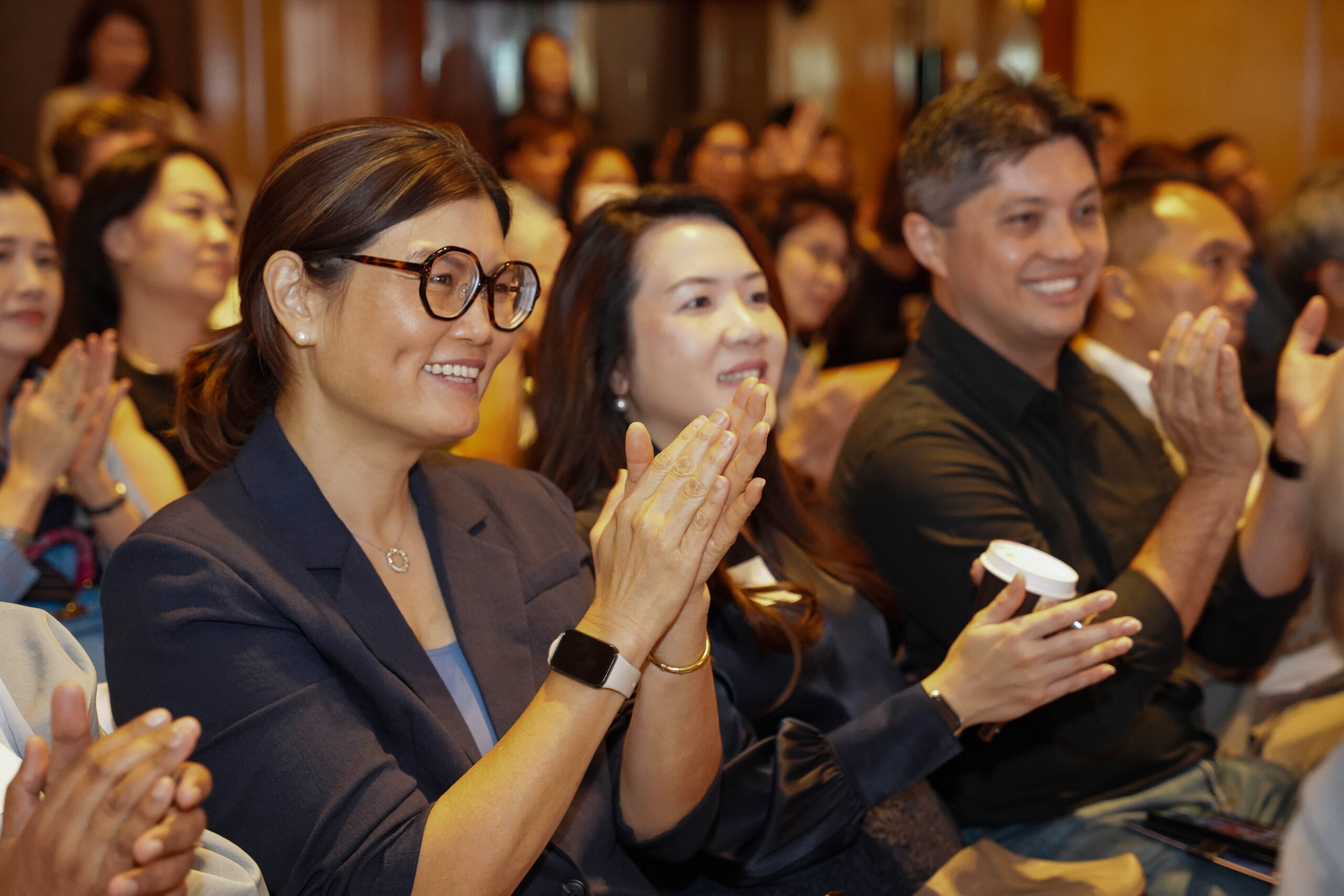
The question today is no longer whether companies should give, but how they can give well.
The future of philanthropy lies in purpose, not paperwork. When businesses contribute their time, talent, treasure, and ties, they don’t just uplift others – they build stronger teams, trusted brands, and a society where prosperity is measured as much by compassion as by success.
As Professor Tommy Koh reminded the audience, “Doing good is good for business. But more than that, it is good for Singapore.”
At CFS, we believe the way forward is structured philanthropy — giving that is transparent, purpose-driven, and aligned with long-term goals. Working alongside our corporate partners, we turn generosity into enduring social good.
Because in the end, doing good isn’t just good for business — it’s how we build a more caring Singapore.
In today’s business landscape, success is no longer measured by profits alone. Increasingly, companies are judged by how responsibly they grow, and how generously they give back.
Corporate philanthropy in Singapore is evolving beyond token cheques and CSR boxes to tick. It’s becoming a core business strategy, one that shapes culture, attracts talent, and strengthens trust with communities.
At the Community Foundation of Singapore (CFS), we believe in purposeful giving — philanthropy that is structured, transparent, and aligned with a company’s mission. Bringing this perspective to the discussion, CFS Chief Executive Officer Paul Tan joined three prominent voices at a dialogue co-hosted by CFS and the National Volunteer and Philanthropy Centre (NVPC) to explore how purpose and profit can move in tandem.
They were:
- Professor Tommy Koh, Ambassador-at-Large at the Ministry of Foreign Affairs;
- Ms Ang Bee Lian, Senior Advisor at the Ministry of Social and Family Development;
- Mr Kwee Ker Fong, Director of Pontiac Land Group and Co-founder of ImpactSG.
Their message was clear: doing good is not charity; it’s smart business.
Beyond the Cheque: Doing Good as Smart Business
Professor Koh began with a simple but powerful challenge: that companies must move past the outdated notion of serving only shareholders. “Companies have responsibilities to employees, suppliers, partners, and the community,” he said.
Drawing from his experience in the United States, Professor Koh noted that even those with modest means contribute regularly to charitable causes, a mindset he hopes to see grow among Singaporean companies. “By doing good, companies attract good people,” he added. “If you are selfish and self-centred, you will not retain talent.”
This evolution from transactional to transformative giving illustrates how purpose is increasingly woven into a company’s identity – shaping not just what businesses do, but who they are.
Aligning Strengths with Service

Echoing Professor Koh’s call for a broader corporate conscience, Mr Kwee Ker Fong shared how Pontiac Land makes giving authentic by building on what it does best.
At Pontiac Land, the family-owned property and hospitality group has channelled its staff expertise into social good. From deploying hospitality teams to soup kitchens to decluttering the homes of the elderly, their approach goes beyond donations to direct engagement.
“We believe giving starts at home,” he shared. The company extends support to its own people – from subsidised staff lunches and compassionate funds for families in crisis to bursaries for employees’ grandchildren.
“Most of us cannot change the world like Bill Gates,” Mr Kwee reflected, “but we can change our communities.”
The Human Side of Giving

For Ms Ang Bee Lian, philanthropy is not just about money. “When companies create space for staff to volunteer, hidden talents emerge and deeper bonds form,” she said. “Once people experience volunteering, their hearts open – and after that, the wallet follows.”
Building on that point, Ms Ang urged companies to think more holistically. “Charities today cut across domains – ageing, health, arts, social inclusion. Corporate giving should support this interconnectedness,” she said.
Her words resonated with the broader theme of the afternoon: that philanthropy, when made personal, becomes transformative.
Towards Purpose in Action
Building on earlier reflections on empathy and engagement, the discussion explored how companies can translate purpose into action, sharing creative, transformative examples of giving.
One such story came from Guide Dogs Singapore. Professor Tommy Koh’s determination to introduce guide dogs to Singapore found unexpected momentum when a donor expressed a wish to help “working animals.” From that spark grew a first-of-its-kind service that restores independence and dignity to the visually impaired.
At Pontiac Land, purposeful giving took shape in the form of nutrition support for children’s homes. Discovering wide variations in meal standards, the company partnered the Health Promotion Board to host a workshop where Michelin-trained chefs demonstrated how to prepare nutritious, affordable meals within a S$5 budget – empowering caregivers through shared learning rather than top-down aid.
“When companies align what they know best with what communities need, the results are powerful,” said Mr Kwee.
A Call for Collective Action
As the discussion turned to the broader giving ecosystem, panellists reflected on how Singapore’s corporate community could deepen its collective impact.
Despite Singapore’s prosperity, Professor Koh noted that poverty still surfaces in unexpected places. “We are shocked by the extent of poverty in our schools and universities,” he said. “Even in the midst of great prosperity, there are still too many poor people in Singapore.”
Ms Ang highlighted another dimension – what she called “time poverty.” Many lower-income families, she explained, juggle multiple jobs, caregiving, and household responsibilities with little room to rest or recover. Beyond financial aid, she urged companies to design initiatives that give families back time — through flexible support, services, or community partnerships.
The panellists also identified emerging areas where corporate philanthropy must grow – from mental health and ageing to environmental sustainability.
Offering a data-driven perspective, Mr Kwee pointed out that while companies contribute 35 per cent of Singapore’s tax revenue, their giving remains roughly equal to that of individuals. “Corporates can and should do more,” he said.
Closing the discussion, Paul reflected that as Singapore prospers, the responsibility to ensure no one is left behind becomes ever more important – a belief that underpins CFS’ work through initiatives like the Collective for a Stronger Society, which unites partners to support lower-income families across Singapore.
The Future of Corporate Philanthropy

The question today is no longer whether companies should give, but how they can give well.
The future of philanthropy lies in purpose, not paperwork. When businesses contribute their time, talent, treasure, and ties, they don’t just uplift others – they build stronger teams, trusted brands, and a society where prosperity is measured as much by compassion as by success.
As Professor Tommy Koh reminded the audience, “Doing good is good for business. But more than that, it is good for Singapore.”
At CFS, we believe the way forward is structured philanthropy — giving that is transparent, purpose-driven, and aligned with long-term goals. Working alongside our corporate partners, we turn generosity into enduring social good.
Because in the end, doing good isn’t just good for business — it’s how we build a more caring Singapore.
- Related Topics For You: COLLABORATION, CORPORATE PHILANTHROPY, EVENTS, PARTNERSHIP STORIES, STORIES OF IMPACT

